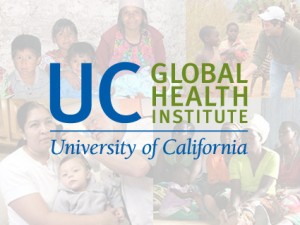Addressing Population Growth to Increase the Well-being of People and the Planet
Feb 13th, 2012 | By admin | Category: Other ResourcesBy Suzanne York, HowMany.org, Feb. 10, 2012
 The University of California, Berkeley hosted a gathering February 4th of globally-respected experts in the fields of population, sustainability, and global health. Some 450 participants heard why it is critical that the world addresses these issues today.
The University of California, Berkeley hosted a gathering February 4th of globally-respected experts in the fields of population, sustainability, and global health. Some 450 participants heard why it is critical that the world addresses these issues today.
Malcom Potts, director and founder of the Bixby Center for Population, Health & Sustainability at UC Berkeley, kicked off the Plenary on population, consumption, and human well-being. Potts has introduced family planning methods into many developing countries, and believes family planning is the single most valuable resource we have at our disposal.
The morning’s keynote speaker was Sir John Sulston, a Nobel Laureate and chair of the UK Royal Society Working Group People and the Planet, a project studying the relationship between changes in population size, age structure, consumption, and human well-being. Sir John minced no words and said that we need to think about the the well-being of the planet and not just human well-being, stating that “we should accept responsibility for stewardship.”
The most urgent actions he sees facing society will be lifting the poorest 1 billion out of poverty, stabilizing and reducing material consumption in the developed nations, continuing the current downward trajectory of fertility rates, and supporting education. Sir John noted that if the world is to find a level of prosperity for 10 billion people (a UN projected population by 2100), it will have to overcome political challenges and escape from the cycle of competitive growth (and consider alternative socio-economic models).
Ndola Prata, a physician and associate professor with the Bixby Center, focused her talk on family planning and Africa. She discussed ways to make family planning “easy” – giving women and men correct information, focusing on comprehensive sexual and reproductive health education for youth, making it affordable, providing a choice of methods, and fostering innovative family planning delivery systems. Interestingly, Dr. Prata noted that injectable contraceptives are the fastest growing and most-preferred form of contraception in Africa.
The second keynote speaker of the day also focused on Africa. Dr. Eliya Zulu is director of the African Institute for Development Policy in Nairobi. He said that while Africa has made considerable progress in reducing death rates and improving life expectancy, the continent is projected to grow from 1 billion people today to 2.2 billion by 2050. This growth will increasingly occur in urban areas and much of this will be a natural increase, and urbanization of suburban areas. Moreover, there is a large youth population – 40% of the total population in Africa is under age15 – meaning high population momentum as those young people start families of their own.
According to Dr. Zulu, the most effective ways to address Africa’s population issues are to end child marriage and keep girls in school, meet the high level of unmet need for family planning and make contraceptives universally accessible, increase funding in family planning, strengthen healthcare systems (and bring services to communities), shift to universal secondary education, and lastly, build political will. One positive example of this is the way the Rwandan government reduced its fertility rate by prioritizing its population growth.
The theme of the conference was that no matter the country or continent, the world should empower communities – especially women – and improve access to family planning and other resources (and also invest in contraception technology), increase human rights, address environmental threats, reduce high levels of consumption, and overcome political challenges for the good of all society. The good news is that those participating in the conference, and many others around the globe, certainly have the will and skills to make this happen.
Suzanne York is a writer with the Institute for Population Studies/HowMany.org
